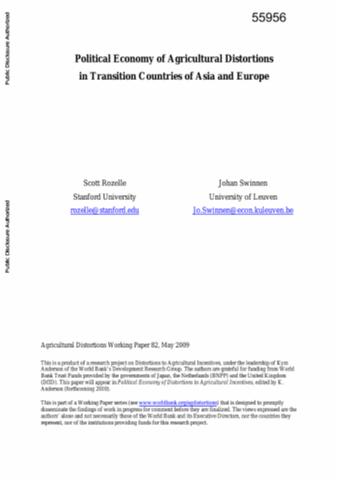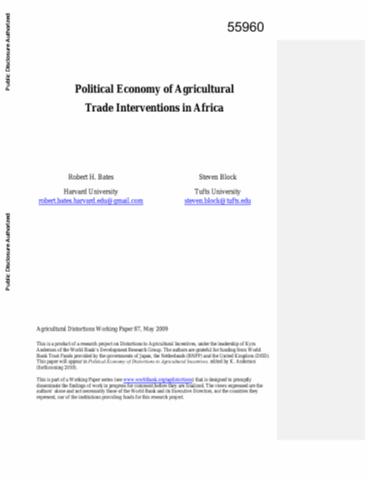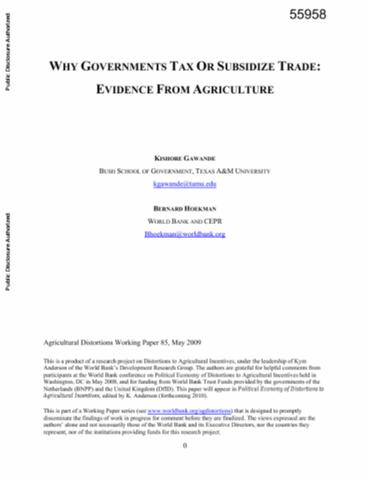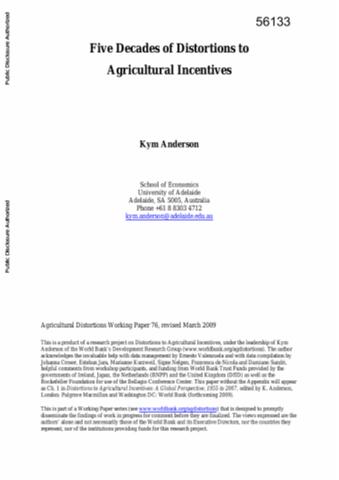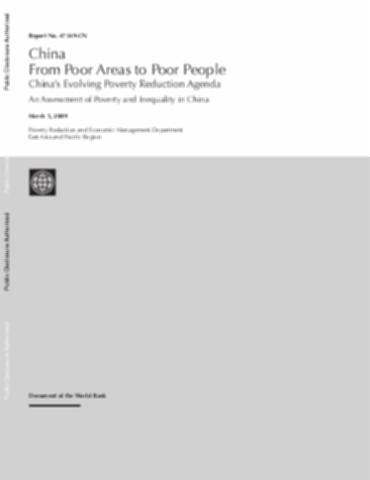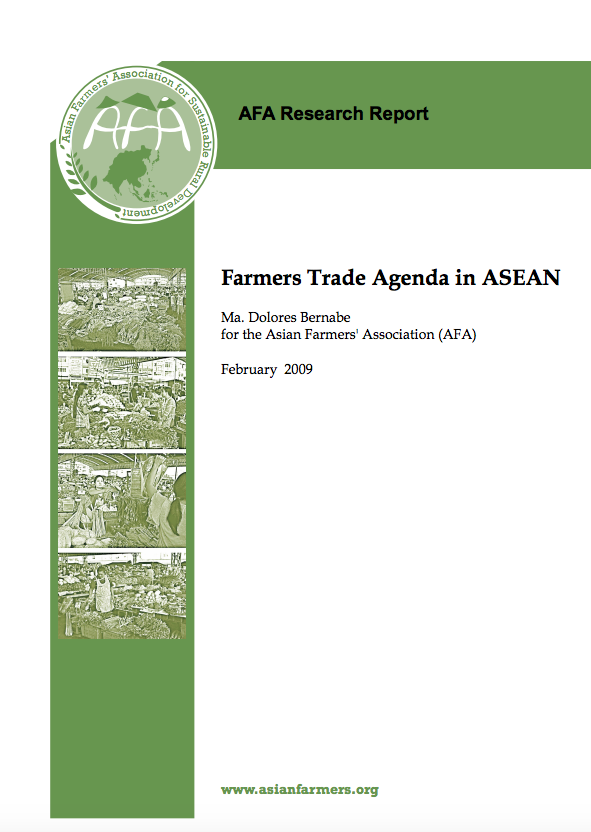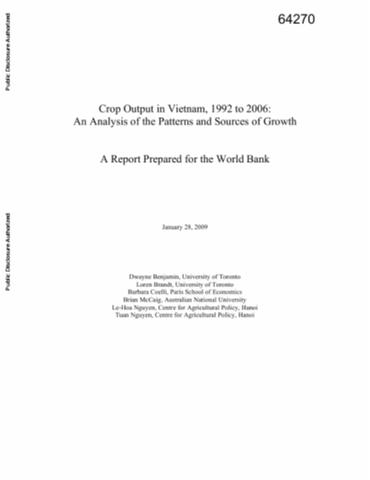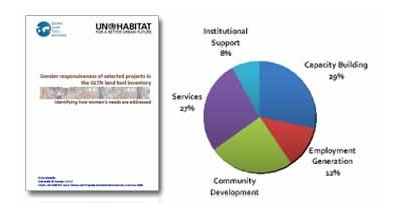Political Economy of Agricultural Distortions in Transition Countries of Asia and Europe
This paper analyzes the political and institutional factors which are behind the dramatic changes in distortions to agricultural incentives in the transition countries in East Asia, Central Asia, and the rest of the former Soviet Union, and in Central and Eastern Europe. The paper explains why these changes have occurred and why there are large differences among transition countries in the extent and the nature of the remaining distortions.

